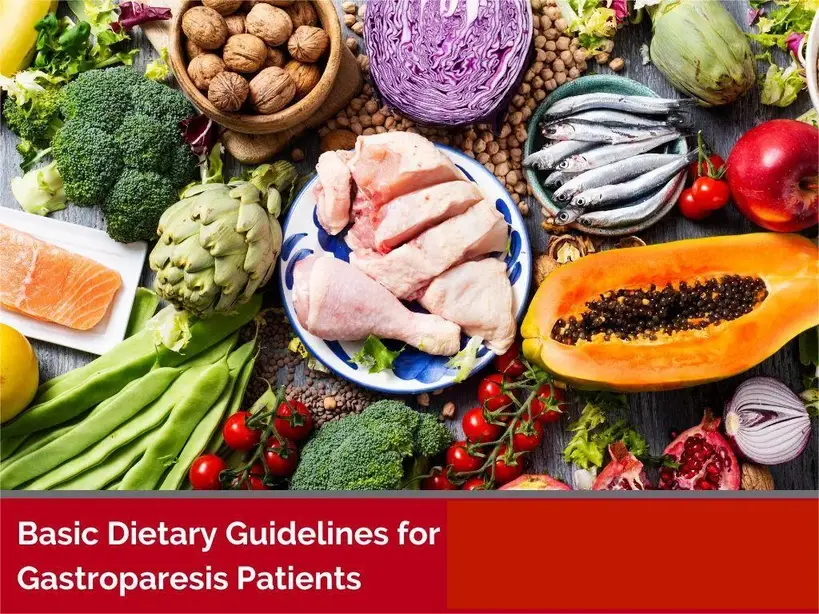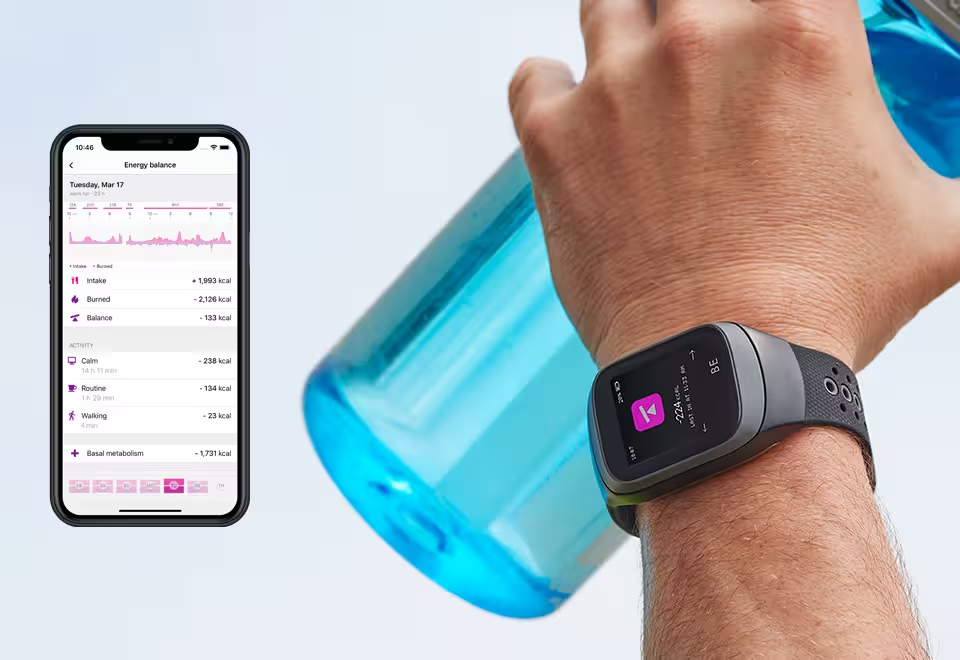Dealing with gastroparesis requires mindful food choices to significantly reduce the discomfort and frequency of symptoms.
Understanding Gastroparesis and Its Dietary Impact
Gastroparesis, commonly known as delayed gastric emptying, is a condition that can make eating an uncomfortable experience. This disorder slows or even halts the movement of food from the stomach to the small intestine, despite there being no blockage. The result is a host of unpleasant symptoms including:
- Persistent and painful bloating
- Frequent and excessive burping, often coupled with a sour taste
- A sensation of fullness soon after starting a meal that lingers long after eating
- Persistent heartburn that can be severe and unresponsive to standard treatments
- Nausea that can range from mild to severe, sometimes leading to vomiting
- A noticeable decrease in appetite due to the discomfort
- Persistent upper abdominal pain that can be sharp or dull
Prevalence and Causes: Who Is Affected by Gastroparesis?
Gastroparesis is considered a relatively rare condition, with the National Institute of Diabetes and Digestive and Kidney Diseases (NIDDK) estimating its prevalence at about 50 per 100,000 adults. The condition is significantly more common in women, who are four times more likely to be affected than men. The most frequent cause of gastroparesis is diabetes, particularly when blood sugar levels are not well controlled. However, other factors can contribute, including certain medications such as GLP-1 agonists (e.g., Ozempic), damage to the vagus nerve, and autoimmune diseases that disrupt normal stomach function. In many cases, no specific cause can be identified, leading to a diagnosis of idiopathic gastroparesis.
The Role of Diet in Managing Gastroparesis
Regardless of the underlying cause, diet plays a crucial role in managing gastroparesis symptoms. Dr. Rudolph Bedford, a gastroenterologist at Providence Saint John’s Health Center in Santa Monica, CA, emphasizes that even foods generally considered healthy might exacerbate symptoms in those with gastroparesis.
“Even seemingly benign foods, like raw vegetables and fruits, can be problematic for people dealing with this condition,” Dr. Bedford explains. “Understanding which foods to eat and which to avoid is essential in controlling symptoms and improving quality of life.”
Foods That Are Easier on the Stomach
Instead of focusing on specific food items, it’s beneficial to consider food categories that are easier to digest. Tara Schmidt, R.D.N., lead dietitian for the Mayo Clinic Diet and co-author of The Mayo Clinic Diet: Weight-Loss Medications Edition, suggests the following:
- Lean and Tender Protein Sources: When selecting proteins, it’s essential to avoid tougher meats that are harder to digest, such as steak or pork chops. Instead, focus on softer, lean proteins like fish, tender chicken, eggs, and tofu. These options are not only easier on the stomach but also provide the necessary protein without overburdening your digestive system.
- Low-Fiber Grains for Gentle Digestion: Fiber, while essential in a healthy diet, can be difficult for people with gastroparesis to digest due to its slower passage through the digestive tract. Schmidt recommends choosing low-fiber grains such as soft-cooked white rice, Cream of Wheat, saltine crackers, and Cream of Rice. These foods are less likely to cause discomfort and can be consumed more frequently without aggravating symptoms.
- Soft and Processed Foods for Easier Digestion: Foods that are well-cooked or processed to reduce their fiber content are often better tolerated by those with gastroparesis. Examples include unsweetened applesauce, ripe bananas, fruits canned in water or their own juice, mashed potatoes, and thoroughly cooked vegetables. These foods can help you maintain adequate nutrition, even when your symptoms are at their worst.
“These food options are particularly useful when symptoms are more pronounced, helping you to meet your caloric, protein, and nutrient needs without causing additional discomfort,” Schmidt adds.
Avoiding Foods That Worsen Gastroparesis Symptoms
Just as important as knowing what to eat is understanding which foods can exacerbate gastroparesis symptoms. Schmidt advises limiting or completely avoiding the following:
- High-Fiber Fruits and Vegetables: Fibrous foods such as broccoli, Brussels sprouts, cauliflower, oranges, and apples with their skins on can be particularly hard to digest. The indigestible components of these foods (including fiber, peels, and seeds) can form clumps in the digestive tract, leading to blockages and worsening gastroparesis symptoms.
- High-Fat and Processed Foods: Even for people without gastroparesis, high-fat and heavily processed foods can be challenging to digest. Schmidt suggests steering clear of fried foods, greasy pizzas, processed meats like bacon or hot dogs, and high-fat desserts, as these can slow down digestion further and lead to increased discomfort.
- Raw Fruits, Vegetables, and Nuts: Raw foods, including fruits, vegetables, and nuts, pose similar challenges to fibrous foods. Their tougher textures can be hard to break down, increasing the risk of bezoar formation—a solid mass of indigestible material that can cause blockages in the stomach.
- Beverages to Watch Out For: The NIDDK advises avoiding alcoholic beverages and carbonated drinks, as these can irritate the stomach lining and exacerbate symptoms when digestion is already delayed.
Modifying Eating Habits for Better Gastroparesis Management
In addition to choosing the right foods, modifying how you eat can play a significant role in managing gastroparesis symptoms. The Mayo Clinic offers the following strategies:
Gradually Introduce Healthy Fats
If you need to increase your caloric intake, healthy fats are an efficient way to do so. However, it’s important to add them gradually to avoid overwhelming your digestive system. For example, you might start by switching from skim milk to 2% milk and monitor how your body handles the change.
Chewing: A Simple Step for Better Digestion
Chewing your food thoroughly before swallowing breaks it down into smaller, more manageable pieces, making it easier for your stomach to digest. Additionally, slowing down while eating can further aid digestion, allowing your body more time to process the food.
Frequent, Smaller Meals for Digestive Comfort
Eating smaller meals more frequently throughout the day helps prevent your stomach from becoming too full, which can exacerbate gastroparesis symptoms. This approach allows your stomach to digest smaller amounts of food more efficiently.
Turning to Liquids During Symptom Flares
When symptoms are particularly severe, consuming foods in liquid or puréed form can be easier on the digestive system. Smoothies, soups, and broths provide essential nutrients while being gentler on the stomach.
Consistent Hydration: A Key to Symptom Management
Maintaining proper hydration is crucial in managing gastroparesis, as dehydration can worsen symptoms like nausea. Instead of drinking large amounts of fluids with meals, which can increase the feeling of fullness, aim to sip water regularly throughout the day. This approach helps keep you hydrated without overloading your stomach.
Lifestyle Adjustments to Complement Dietary Changes
While dietary adjustments are central to managing gastroparesis, certain lifestyle changes can also provide significant relief. Dr. Bedford recommends the following:
- Avoiding the Post-Meal Slump: Refrain from lying down for at least two hours after eating to reduce the risk of acid reflux, which can be particularly problematic for individuals with gastroparesis.
- Quit Smoking: Smoking not only irritates the stomach lining but also contributes to bloating by causing you to swallow excess air.
- Incorporating Light Physical Activity: Gentle activities, such as a short walk after meals, can stimulate digestion and help move food through the digestive tract more efficiently.
- Maintaining Good Posture: Sitting upright, rather than slouching, after meals can prevent downward pressure on the abdomen, which can exacerbate discomfort.
- Considering Supplements: Taking a daily multivitamin can help fill nutritional gaps that may arise from the dietary restrictions associated with gastroparesis.
Depending on the severity of your symptoms, your healthcare provider may prescribe medications to enhance stomach muscle function, control nausea, reduce vomiting, or alleviate pain.
Monitoring and Adjusting Your Gastroparesis Management Plan
Effective management of gastroparesis requires ongoing attention and adjustments. Keeping a symptom diary can help you identify which foods and behaviors trigger your symptoms and which strategies provide relief. This information can be invaluable for fine-tuning your management plan over time, says Dr. Bedford.
Sample Meal Plan for Gastroparesis Management
While everyone’s experience with gastroparesis is unique, the International Foundation for Gastrointestinal Disorders offers the following sample meal plan as a guide:
Breakfast:
- 1 cup of Cream of Wheat, prepared with water or milk
- ½ cup of skim or 2% milk
- 1 scrambled egg, lightly seasoned
Lunch:
- ½ cup of vegetable soup with soft, well-cooked vegetables
- ½ cup of unsweetened applesauce
- ½ turkey sandwich on low-fiber white bread with 1 tablespoon of mayonnaise
- ½ cup of water or milk
- Dinner:
- 2 to 3 ounces of baked chicken or fish, seasoned with herbs
- ½ cup of mashed potatoes with 1 teaspoon of butter or margarine
- ½ cup of cooked spinach or another soft, leafy green vegetable
- ½ cup of canned fruit cocktail, drained of syrup
- ½ cup of water or milk
The Importance of Professional Guidance
Given the complexities of managing gastroparesis, working with a registered dietitian who specializes in this condition is highly recommended. A dietitian can help you create a personalized meal plan that meets your nutritional needs while minimizing symptoms. If you’re unsure where to start, your primary care physician or gastroenterologist can refer you to a qualified professional.
Taking Charge of Gastroparesis
Gastroparesis may present significant challenges, but with the right approach, it doesn’t have to control your life. By carefully choosing your foods, adjusting your eating habits, and making supportive lifestyle changes, you can manage symptoms more effectively and enjoy greater comfort during meals.




